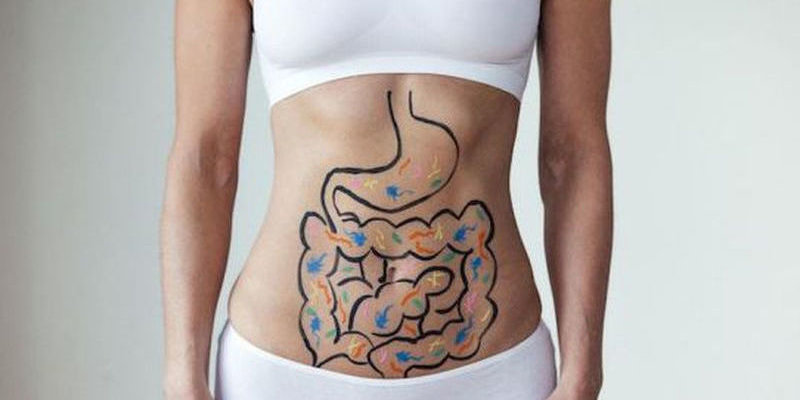Irritable Bowel – the organ that 'reacts' to the feeling
Irritable Bowel – the organ that 'reacts' to the feeling
Is there a 'holistic' solution to this bowel problem?
Whoever has faced, even for a short time, a stressful situation, will surely have been impressed by how their bowel 'behaved' in an emotional state. In other words, you have the impression that our brain has a special way of communicating with our digestive system in general.
Experts now strongly support the relation of bowel health to our physical and mental well-being. But let's take them first in turn to see how we can effectively intervene in this chronic problem.
.

What is Irritable Bowel Syndrome (IBS)?
It is also called spastic colitis. It is a functional bowel disorder characterized by chronic abdominal pain, discomfort, abdominal distension (or bloating), and changes in bowel habits. These symptoms are associated with Irritable Bowel syndrome when, of course, there is no other organic condition.
Research shows that about 1 in 10 (or 11% to 15% of the population) suffer from this syndrome, with only half looking for medical assistance.
Symptoms of this disorder, although not a threat to the life of the sufferer, directly affect social activities, work, travel, sexual function, and sleep quality.
What is the onset of the syndrome?
Opinions about the causes of the syndrome are divided. Some scientists associate the syndrome with the diet, others with any disruption in the person's mobility, while others claim that it is linked to the psycho-emotional state.
Indeed, until the 1990s the syndrome was primarily considered a psychosomatic illness. However, studies that have begun to take place since that time have shown that there is a mixture of biological and pathogenic factors. In particular, it is estimated that the risk of developing is increased 6 times after severe gastrointestinal infections.
Other recent studies show serotonin as a potential causative agent as it is found that patients have decreased receptors for this substance.
Which foods should be avoided by those who suffer from the IBS?
Those who are experiencing this syndrome will certainly have an idea of those foods that affect the bowel condition. Let's look at them briefly.
- Cereals
- Milk & dairy products
- Alcohol
- Coffee
- Tea
- Soft drinks
A good way to specifically control the food we burden is to record them in a notebook so that we know in detail what affects us.

Eat properly to work properly
Some extra tips on nutrition.
- Small and regular meals (5 to 6) are also a solution in this case.
- Prefer foods that are low in fat (fruits, vegetables, lean meat) so you do not burden your intestines during digestion.
- Drink plenty of water and juices, as long as you have determined which fruits do not burden you.
- In some cases it is necessary to avoid lactose (a substance contained in milk and its products).
- Exercise can be a solution - among many others - in abdominal disorders, especially in constipation.
Can the above tips provide a definitive solution on their own?
According to some experts, dietary advice, as well as the administration of medicines on their own, is not enough. It is suggested that the sufferers work in the reconnection of mind and body, through a psychosomatic approach, while following the other medical advice.
This holistic approach to this problem has been a particular field of application at Mount Sinai Hospital in New York. There is a collaboration between gastroenterologists, psychotherapists and hypnotherapists to deal with gastrointestinal problems.
The gastroenterologist Dr. Charles Gerson, a supporter of the holistic approach to treating the problem, states: "I tell patients that if they do not cope with the emotional factors associated with the problem, they may continue to have symptoms."
Psychological treatments to be followed
As interpersonal relationships prove to be able to play an important role in the syndrome, psychological therapies focus on this issue.
Interpersonal and psychodynamic therapy can be a solution to problems in relationships.
Through the cognitive-behavioral approach, hypnosis is still a tool to address the symptoms of the ETS.
Finally, special techniques of relaxation and stress reduction can be particularly effective.
Source : naturanrg.gr, www.advanced-endoscopy.gr
Aggeliki Koskeridou
Holistic Doctor – Counseling Psychotherapist
Doctor of Naturopathic Medicine
MSc c. Health Psychology
insta: dr_aggelikikoskeridou_official





